
Cornish College of the Arts (CCA) is a private art college in Seattle, Washington. It was founded in 1914 by music teacher Nellie Cornish. The college's main campus is in the Denny Triangle neighborhood near Downtown Seattle.

Fremont is a neighborhood in the North Central District of Seattle, Washington, United States. Originally a separate city, it was annexed to Seattle in 1891. It is named after Fremont, Nebraska, the hometown of two of its founders: Luther H. Griffith and Edward Blewett.
History of Seattle, Washington 1900–1940: Seattle experienced rapid growth and transformation in the early 20th century, establishing itself as a leader in the Pacific Northwest. The Klondike Gold Rush led to massive immigration, diversifying the city's ethnic mix with arrivals of Japanese, Filipinos, Europeans, and European-Americans. The city expanded geographically through annexations and ambitious regrade projects, most notably the Denny Regrade which leveled more than 120 feet of Denny Hill. Major infrastructure projects shaped the city, including the construction of the Lake Washington Ship Canal and the development of an extensive park system designed by the Olmsted Brothers. The Alaska-Yukon-Pacific Exposition of 1909 celebrated the city's rise, while the completion of Smith Tower in 1914 gave Seattle the tallest building west of the Mississippi River.
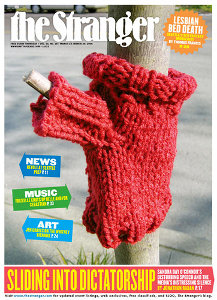
The Stranger is an alternative news and commentary publication in Seattle, Washington. Founded in 1991 by Tim Keck and cartoonist James Sturm, it has a progressive orientation. The paper's principal competitor was the Seattle Weekly until 2019 when the Weekly ceased print publication. Originally published weekly, The Stranger became biweekly in 2017 and suspended print publication during the COVID-19 pandemic in 2020, resuming publication of a quarterly arts magazine in March 2023. It also publishes online content.

The Seattle Star was a daily newspaper that ran from February 25, 1899, to August 13, 1947. It was owned by E. W. Scripps and in 1920 was transferred to Scripps McRae League of Newspapers, after a falling-out within the Scripps family. The company, which eventually became Scripps League Newspapers, Inc., owned the paper until 1942, when it was sold to a group of local Seattle businessmen including Howard Parrish, its publisher. Soon after the sale, it reverted to its previous broadsheet format after having been a tabloid for a short time. Of the three Seattle general circulation dailies, it was the smallest in circulation, although it had been the largest paper in the city around 1900.
Westside Seattle, formerly The Westside Weekly, is a weekly newspaper that serves the areas of West Seattle, Ballard, White Center, Burien, Des Moines, and SeaTac in Washington state.

Seattle Public Schools is the largest public school district in the state of Washington. The school district serves almost all of Seattle. Additionally it includes sections of Boulevard Park and Tukwila. As of the 2021-2022 academic year, 106 schools are operated by the district, which serve 51,650 students throughout the city.

Seattle is a significant center for the painting, sculpture, textile and studio glass, alternative, urban art, lowbrow and performing arts. The century-old Seattle Symphony Orchestra is among the world's most recorded orchestras. The Seattle Opera and Pacific Northwest Ballet, are comparably distinguished. On at least two occasions, Seattle's local popular music scene has burst into the national and even international consciousness, first with a major contribution to garage rock in the mid-1960s, and later as the home of grunge rock in the early 1990s. The city has about twenty live theater venues, and Pioneer Square is one of the country's most prominent art gallery districts.
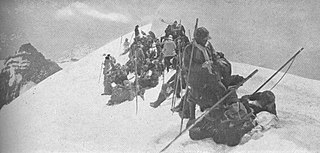
The Mountaineers is an alpine club in the US state of Washington. Founded in 1906, it is organized as an outdoor recreation, education, and conservation 501(c)(3) nonprofit organization, and is based in Seattle, Washington. The club hosts a wide range of outdoor activities, primarily alpine mountain climbing and hikes. The club also hosts classes, training courses, and social events.
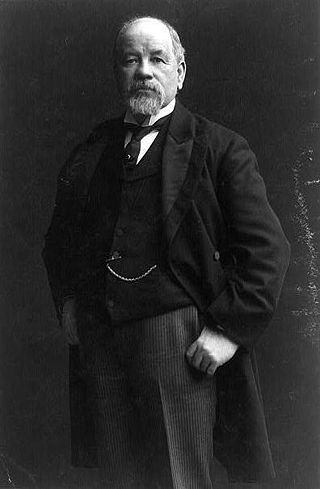
Thomas Burke was an American lawyer, railroad builder, and judge who made his career in Seattle, Washington. He served as chief justice of the Supreme Court of the Washington Territory from 1888 to 1889. He was the main representative of railroad magnate James J. Hill in Seattle. Burke Avenue, The Burke-Gilman Trail and the Burke Museum are named in his honor.
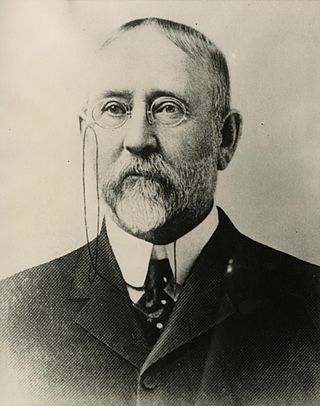
Eugene Semple was an American politician who served as the 13th governor of Washington Territory and the unsuccessful Democratic candidate to be the first governor of Washington State.

Seattle Parks and Recreation is the government department responsible for maintaining the parks, open spaces, and community centers of the city of Seattle, Washington. The department maintains properties covering an area of over 6,200 acres (25 km2), which is equivalent to roughly 11% of the city's total area. Of those 6,200 acres (25 km2), 4,600 acres (19 km2) are developed.
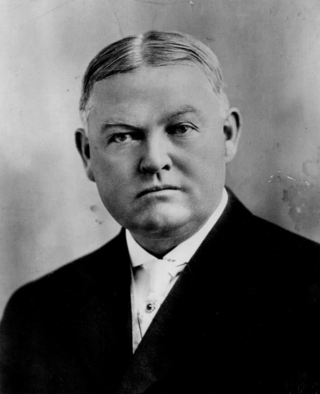
John W. Considine was an American impresario, a pioneer of vaudeville.
The New Order of Cincinnatus (NOOC) was a young men's political organization established in Seattle, Washington in the 1930s. The short-lived "conservative and moralistic reform group" was a municipal party that challenged both the Democratic and Republican parties, electing David Lockwood and Frederick G. Hamley, a lawyer, public official and judge, and Arthur B. Langlie to the Seattle City Council. Lockwood, age 26 at the time of his election, was the youngest person ever to sit on the council. In 1938, Langlie became Seattle mayor, but by then the NOOC was fading. During its brief existence, the group spread beyond Seattle, and was active in Tacoma, Washington, Portland, Oregon, and San Francisco.
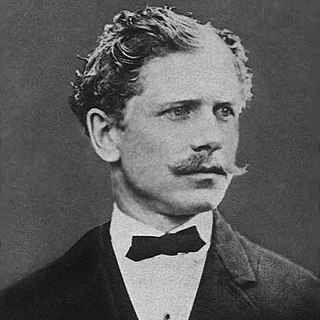
Ambrose Gwinnett Bierce was an American short story writer, journalist, poet, and American Civil War veteran. His book The Devil's Dictionary was named one of "The 100 Greatest Masterpieces of American Literature" by the American Revolution Bicentennial Administration. His story "An Occurrence at Owl Creek Bridge" has been described as "one of the most famous and frequently anthologized stories in American literature", and his book Tales of Soldiers and Civilians was named by the Grolier Club one of the 100 most influential American books printed before 1900.

The Butler Hotel or Hotel Butler in Seattle, Washington, was one of Seattle's leading hotels in the late 19th and early 20th centuries. It was located at the corner of Second Avenue and James Street, in what is now the Pioneer Square-Skid Road National Historic District. During the Prohibition era, its Rose Room was repeatedly cited for flouting the laws against the consumption of alcoholic beverages. It closed in 1933; the lower two floors survive as part of the Butler Garage. The building itself is also known as the Butler Block, the name over the main entrance.
Henry Alexander Chadwick was an American journalist; from 1894 until his death, he was the editor, owner and publisher of The Argus, a weekly newspaper in Seattle, Washington.

The Lester Apartments was a building on the west side of Beacon Hill, Seattle, Washington, United States. It was constructed in 1910–1911, originally intended to be the world's largest brothel. After scandal forced Seattle mayor Hiram Gill from office, the building was converted to be an ordinary apartment house. It met a disastrous end when a B-50 Superfortress crashed into it in 1951, causing a fire that engulfed the building.
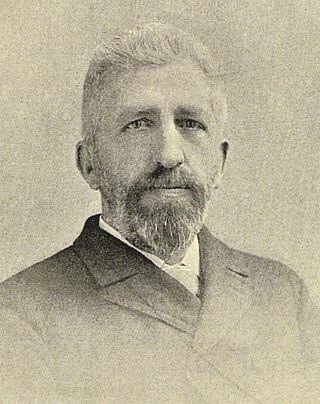
Jacob Furth was an Austrian Empire-born American entrepreneur and prominent Seattle banker. He played a key role in consolidating Seattle's electric power and public transportation infrastructure, and was a member of Ohaveth Sholum Congregation, Seattle's first synagogue. Bill Speidel called him "the city's leading citizen for thirty years," adding that Furth "may even have been the most important citizen Seattle ever had."
The following is a timeline of the history of the city of Seattle, Washington, USA.















